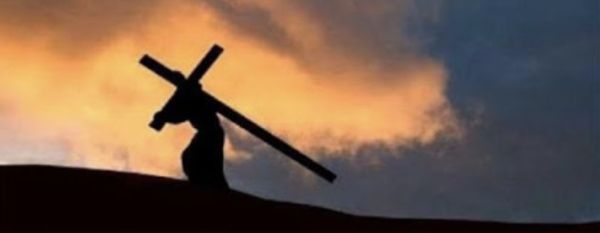Parishes: strive for Heaven, without burden or hindrance
(Lk 12:35-38)
In order to make us understand what it means to be prepared to set out immediately, Jesus urges our awareness, our capacity for perception.
He does not extinguish the aptitude for unprecedented judgement, and gains amazement.
Because the roles are suddenly reversed - so one must be open to trust: those who seem small suddenly become 'big'.
Ancient religion drags problems down, and makes one sick, inculcating the spirit of submission and toil, for wages. The slave remains a slave, although he pursues who knows what.
In the adventure of Faith, one does not strive for goals that do not correspond. In addition, servant and master are in a reciprocal relationship and incessantly reverse roles.
As Lk says, the Lord himself "will gird himself and make them lie down [position of the lords of the time at solemn banquets] and pass by serving them" as if he were a "deacon" (v.37 Greek text).
This activates a total vigilance, ready to move the whole person, the territories (Fratelli Tutti, n.1: "beyond the place of the world"), the hierarchies.
The one who felt "employed" becomes "director" and protagonist: he acquires an attitude of fullness.
In the Kingdom of God, forms of life change. In religions - conversely - nomenclatures consolidate, and the very symptoms of errors even find a sacralisation.
Many devout forms have a different foundation, a very different idea of how to enrich existence, than the experience of Faith.
In the Church there is no treasure, because our hearts do not live on worldliness and competition: goods are transformed into relationships and possibilities for encounter.
The particular task and the entire existence of each person becomes a source of joy for the desperate, nourishment for those who seek understanding, listening, acceptance, a "true recognition" (Brothers All, 221).
The Tao Tê Ching (LXVI) says: "The saint stands above and the people are not burdened by it, he stands in front and the people are not hindered by him".
Christ has shown the Way to true enrichment. Thus he has transformed us into perhaps restless, but brisk beings.
We cannot sleep even at night, we cannot take a holiday, we cannot rest in a quiet, relaxed, normal way, but we have a step that flies by.
We sigh all the time, not because of material fortune, but because the opportunity of life may not find us ready to recognise it.
Augustine said: 'Timeo Dominum transeuntem'.
In religions, everything seems clear and pre-established - and in reality everything is left in doubt and to a quirky hypothesis of a hoped-for future.
And indeed, it is very strange that this Master does not arrive at the appointed time.
Instead, Christ wants to be reinterpreted.
He is living in us, joint and coheirs - Incarnate, all real. If so, He will also permeate the rebels, changing their outlook.
This condition is a source of growth for us: it heightens our vigilance over events, the folds of history; over the meaning of encounters, the motions of the soul, and so on.
Thus, life in the Spirit challenges and enriches the exuberant side of the personality, accentuating the most singular opportunities for the unprecedented.
The Lord even admits wandering: sometimes we need to lose ourselves, in order to find ourselves - and coincide with what we are in essence, and are becoming.
The 'butler' placed at the service of the House of God and the brethren has the task of helping dynamic discernment, and the duty to support it.
His service on behalf of others will be all-round, so that each one may correspond to the Call and proceed on his own feet.
And we shall do so willingly, without any effort whatsoever, because of the excess of Grace that comes our way: in spite of and because of indeterminacy, because we are made abundantly rich by God.
Blessed (v.38) without condition, but with the belt at our sides, that is, with the attitude of one who leaves a land of bondage.
«The primitive Christian community was well aware of this, which considered itself down here as "foreigners" and called its nuclei living in the cities "parishes", which means precisely colonies of foreigners [in Greek pàroikoi] (cf. 1Pt 2:11). In this way the early Christians expressed the most important characteristic of the Church, which is precisely the tension towards heaven».
[Pope Benedict, Angelus 12 August 2007].
To internalise and live the message:
Does the Christian community accentuate your personal perception or dampen it? Does it make you live in a swampy, predictable state, where all solutions are ready, complete and already tried and tested, or does it make you start again promptly, immediately and autonomously?












